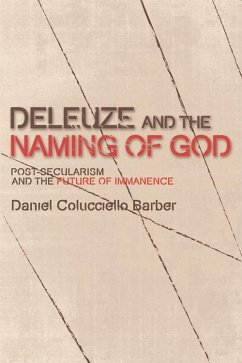
Deleuze and the City
Versandkostenfrei!
Versandfertig in 2-4 Wochen
38,99 €
inkl. MwSt.
Weitere Ausgaben:

PAYBACK Punkte
19 °P sammeln!
Defining the lives of most the worldâ s population, the question of â the cityâ is one of the most urgent issues of our time. This volume gathers some of the most original thinkers in contemporary urban studies to how Deleuze and Guattari are essential for thinking through the landscapes that constitute â the cityâ today.













